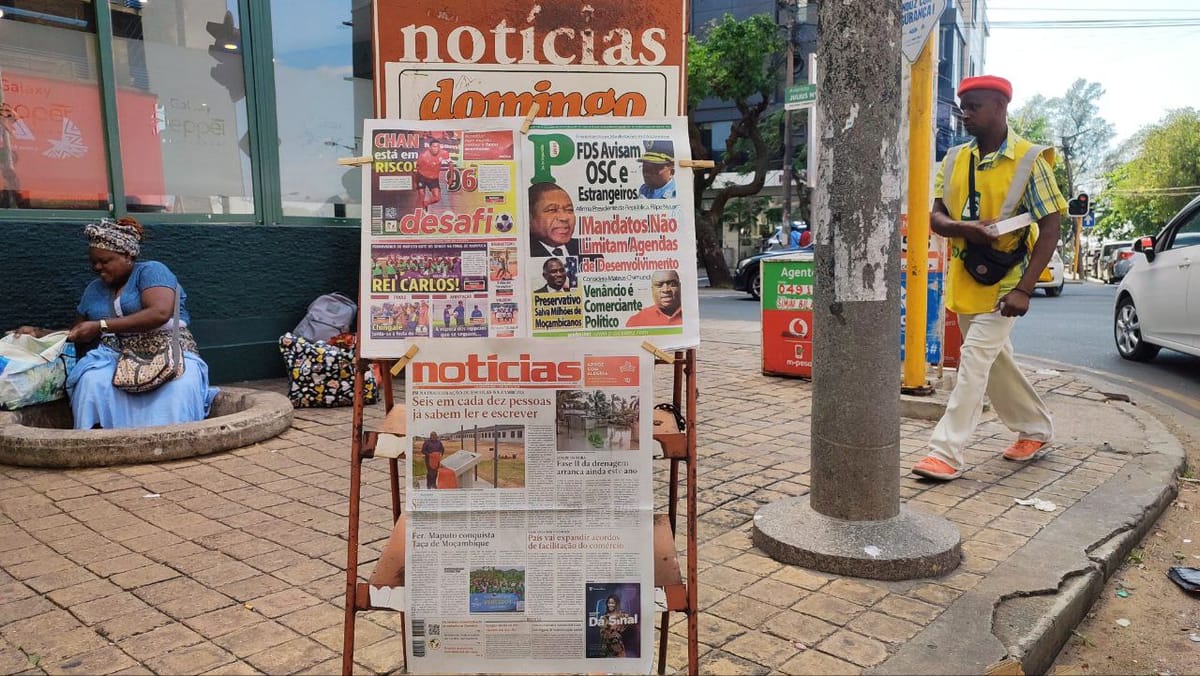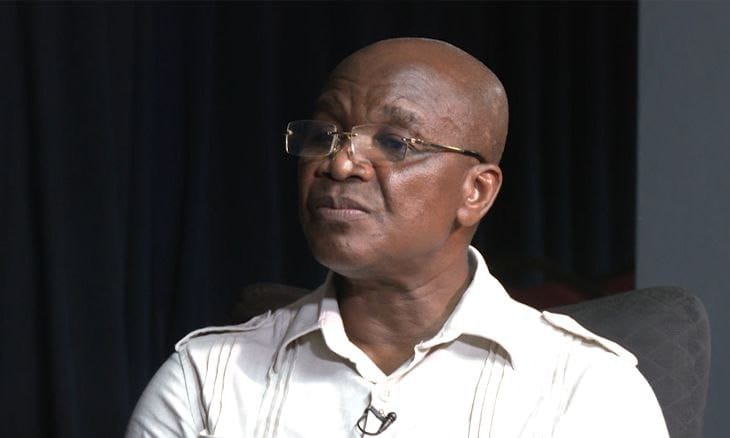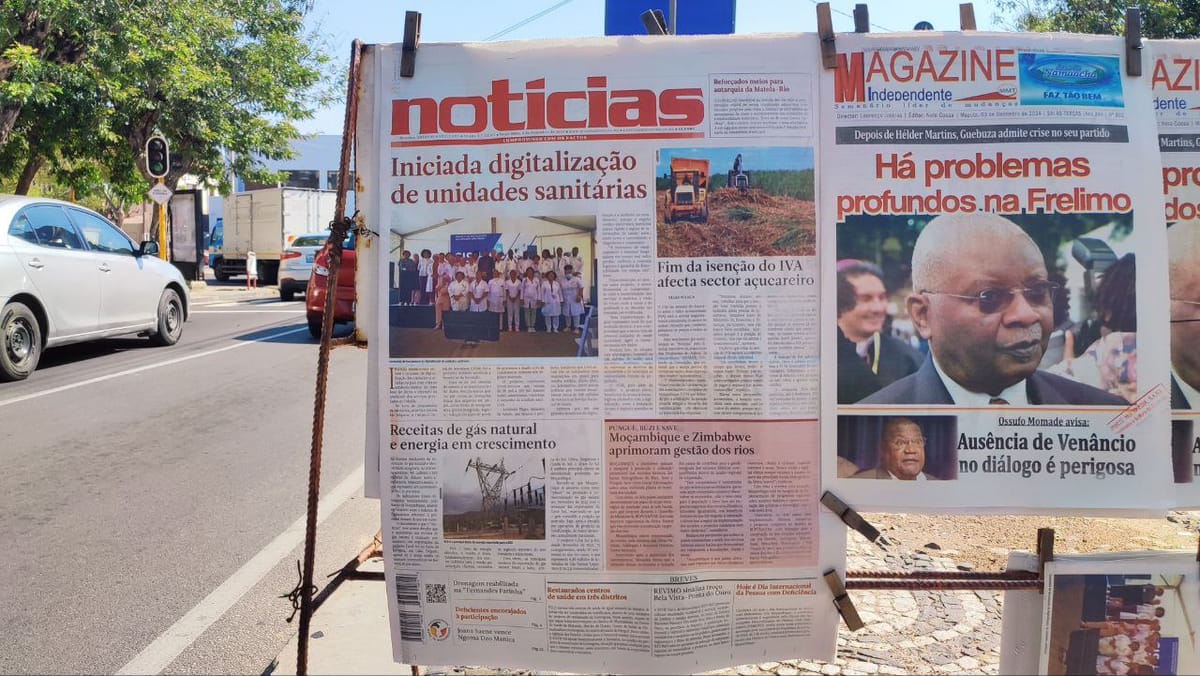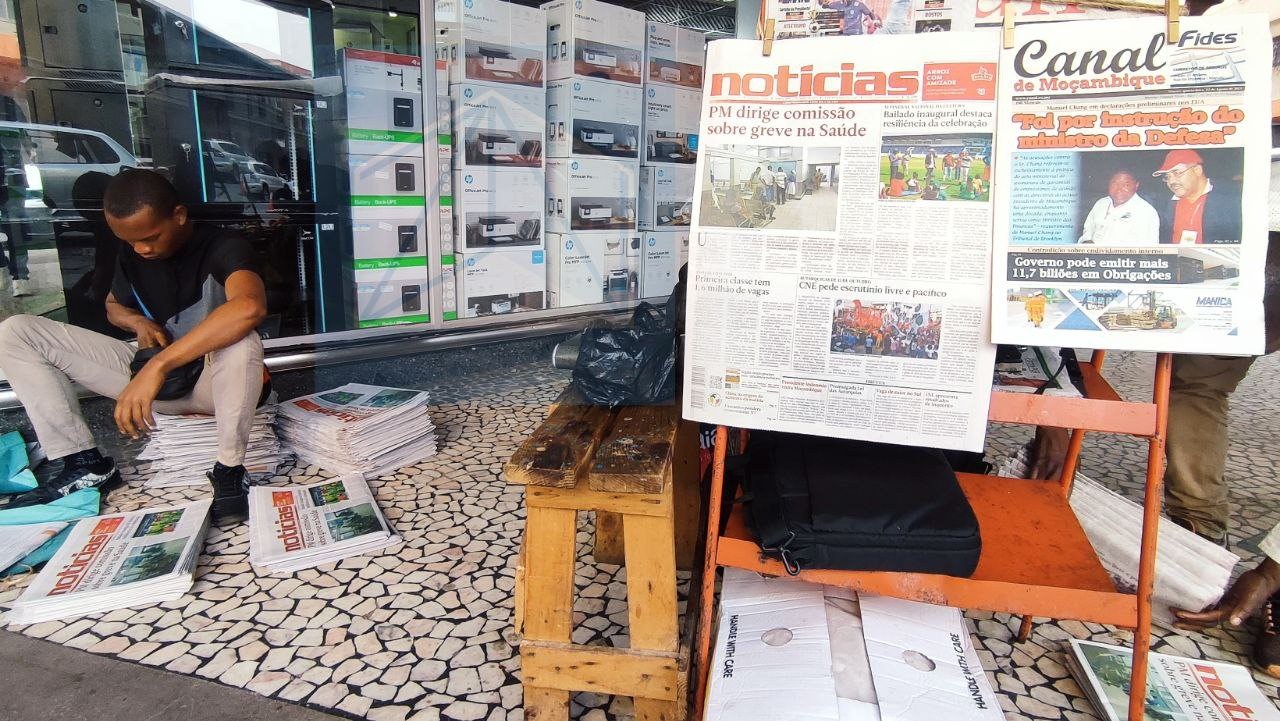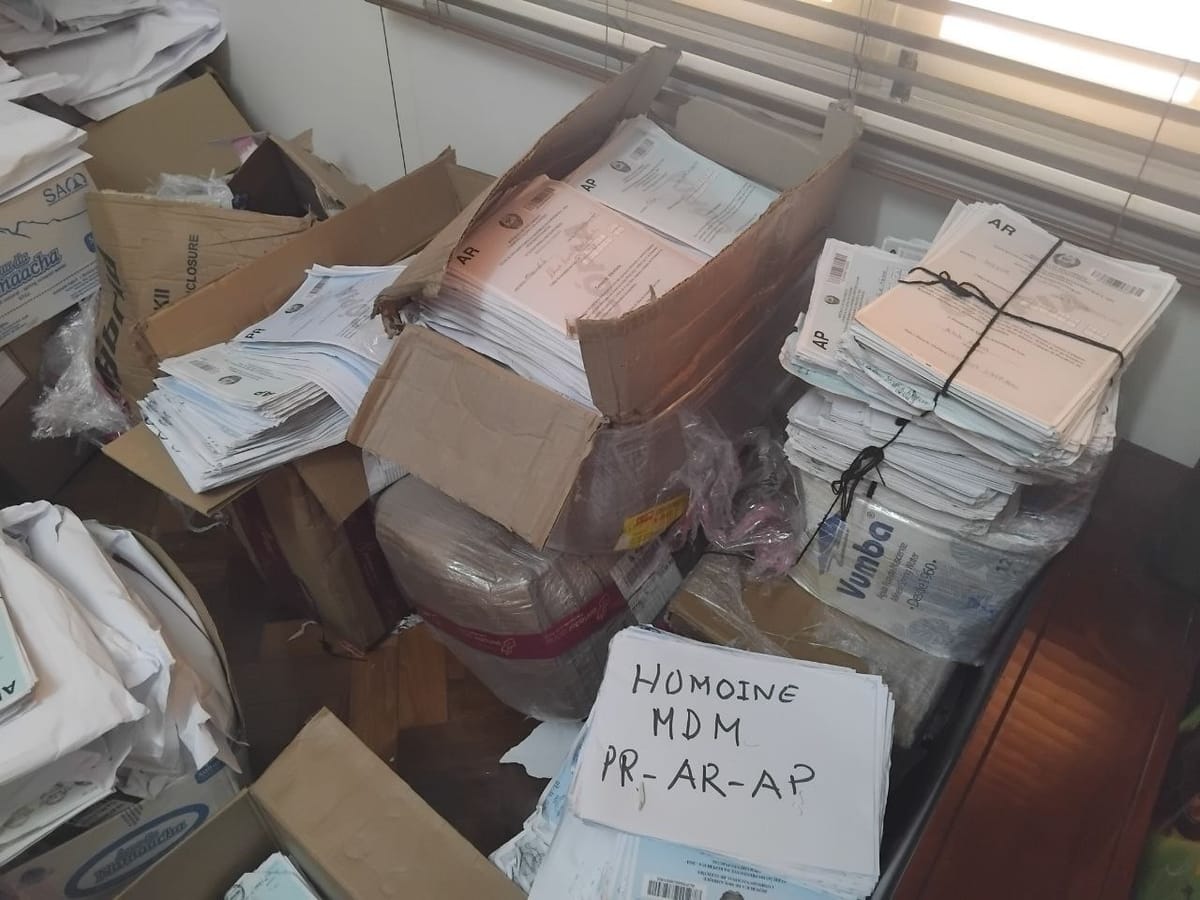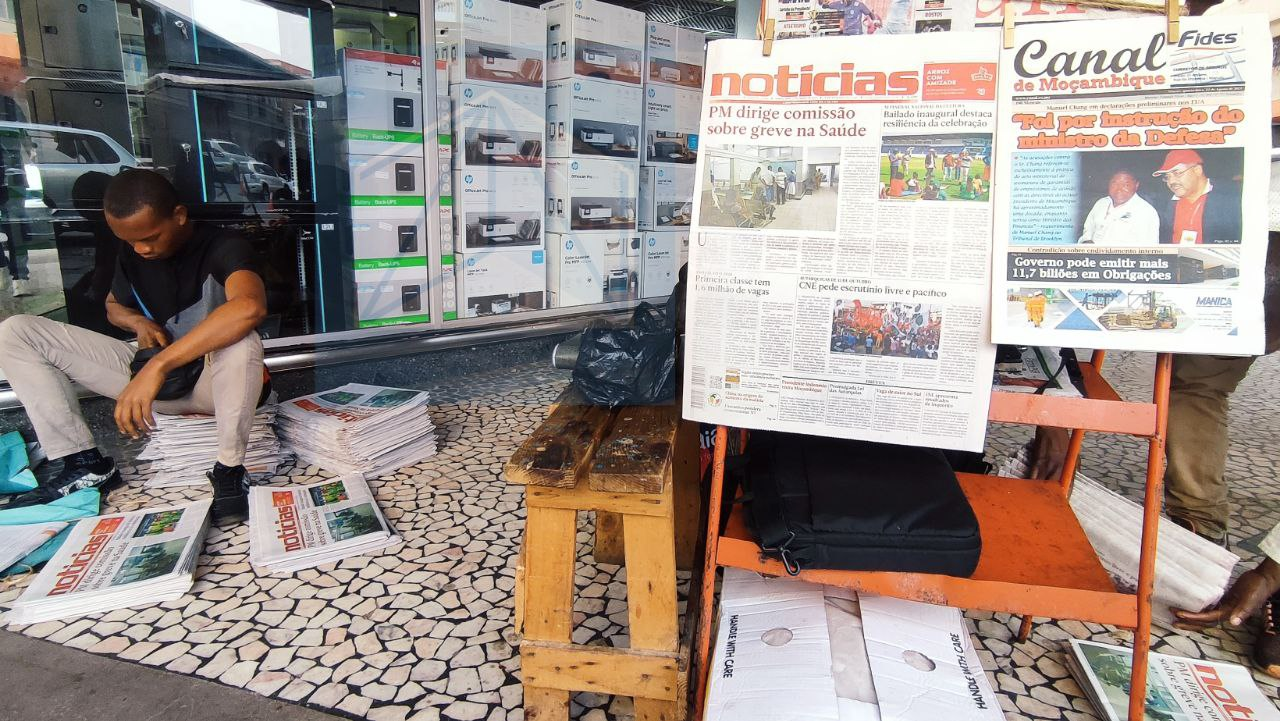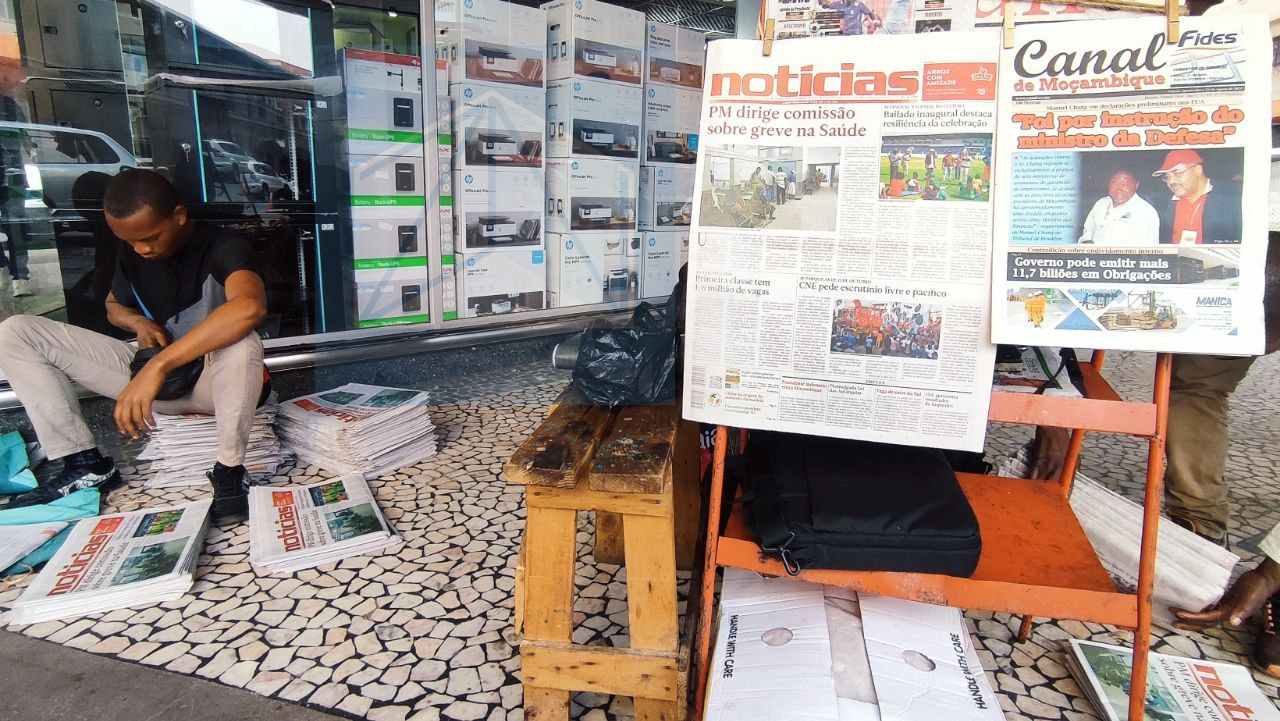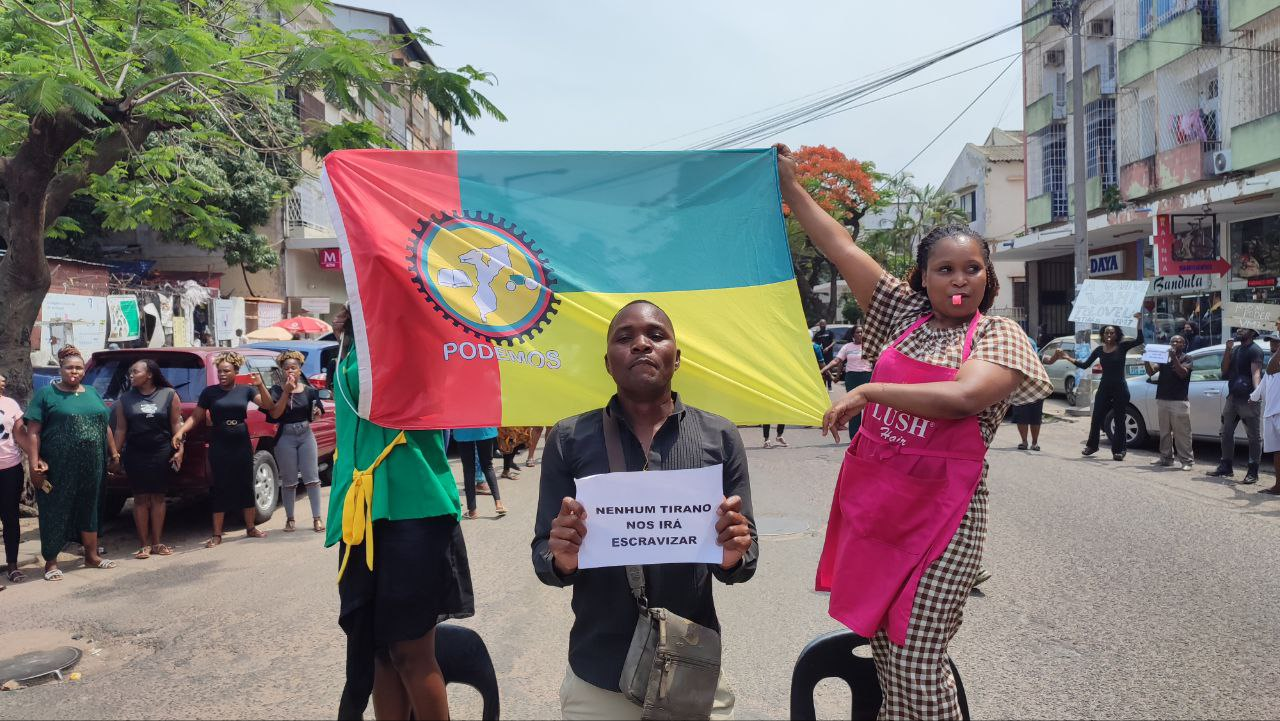Good evening, from an increasingly troubled Mozambique. While the demonstrations called for by Venâncio Mondlane continue, lawlessness appears to be on the rise — with economic infrastructure also being targeted.
The big news this weekend in that regard was the shut-down of two major power plants serving Maputo and the south of the country, in Ressano Garcia, the town on the border with South Africa. Both the CTRG and Gigawatt plants were switched off as a precautionary measure as they were being targeted by protesters, according to a statement from national electric company EDM. They took a total of 250MW generating capacity off the grid, initially causing a 150MW deficit in the southern grid, leading to rolling power cuts — and causing EDM to halt exports of power to Zambia, causing outages in that country too.
The latest on that story this evening is that EDM has now managed to speak to the protesters, and to get both power plants restarted.
The heavy sand mine owned by Kenmare Resources, at Moma on the Nampula coast, has also been a magnet for demonstrators. The mining project — one of Mozambique’s most important sources of foreign exchange — has not apparently been targeted, but rather local government installations in the area. Protesters did swarm the mine’s airstrip as a plane bringing a staff rotation was due to land last week, causing it to execute an immediate emergency takeoff; however, the staff rotation was completed the following morning, and production at the mine continues unaffected, Zitamar understands. Meanwhile, anger is focusing on the government which has failed to build a long-promised bridge that Kenmare has committed to part-financing.
Chibuto in Gaza province, home to another big sand mine, also saw major disturbances, with 80 prisoners freed by protesters, Frelimo offices burned, and a leisure complex belonging to the family of former president Joaquim Chissano attacked. These incidents and more, including in the town of Chokwe, were reported by state-owned news agency AIM’s English service, under the headline Rioting comes to the Frelimo heartland. “At the time of writing, it is not entirely clear why Frelimo support appears to have evaporated in Chokwe and Chibuto,” wrote AIM. Perhaps it's more obvious in Pemba, the capital of Cabo Delgado, where protestors tore down a statue of Alberto Chipande, the Frelimo veteran power-broker and liberation war hero.
The capital was mostly quiet over what was the first weekend that Venâncio Mondlane had not called for a pause, as part of the week-long so-called “4x4” phase of the demonstrations. But things could get more intense tomorrow, and indeed seemed to be doing so this evening, after Mondlane — who was named ‘Lusophone personality of the year’ by Portuguese news agency Lusa — claimed yesterday he had survived an assassination attempt, giving his supporters another focus for their anger.
Week in Review
Monday
Accusations made by the police of foreign interference in election protests [come] after an anonymous “open letter” that appeared on social networks recently, accusing the Swedish and Dutch ambassadors of colluding with opposition presidential candidate Venâncio Mondlane and the Podemos party that supports him. In addition, the anonymous “MozLeaks” pamphlet recently cited photos of certain white people who have been seen taking part in demonstrations, and accused them of funding the protests. Coincidentally or not, they were all women, some quite high-profile, and actually likely to all be dual nationals. Meanwhile, Alcinda Abreu, a member of ruling party Frelimo’s Political Commission, has implied that there is an international conspiracy to remove Frelimo and other African “liberation parties” from power. No evidence has been presented for any of these claims.
But if any political force in Mozambique relies on outside help, it is Frelimo and the government. Both benefited from the work of the Russian think tank Afric, which published a pro-Frelimo poll in the run-up to the 2019 elections. The government is quite happy to take money from foreign donors when that supports the building of schools and other infrastructure, and it does not mind allowing the International Monetary Fund to run much of its economic policy in return for a cheap loan. “Do as we say, not as we do” seems to be Frelimo’s watchword.
Tuesday
At first glance, you might think that the protests over the disputed election results were the sole cause of Mozambique’s economic problems, as raised by the Bank of Mozambique. That may well be how the government chooses to present it, but the reality is more complicated.
It is true that the protests have dented economic activity over the last month, but this is just making a bad situation worse. In particular, the public finances have been in a steadily worsening state for several years, something that ratings agency S&P reminded us about back in September. Total domestic public debt doubled between 2020 and the middle of this year, thanks to overspending on introducing the disastrous so-called single salary table and the rising costs of the war in Cabo Delgado province.
Already last year, the government delayed repayments on some local currency debt. The fiscal problem is in danger of becoming a banking problem, if the defaults increase, because government debt as a share of banks’ assets has risen, averaging 24% since 2017, according to S&P.
Wednesday
Attorney General Beatriz Buchili has stepped down after completing two fixed five-year terms, from 2014 to 2019 and from 2019 to 2024. Letela has more than 20 years’ experience as a prosecutor, starting his career at the Panda district prosecutor's Office in Inhambane province. He rose through the ranks to become provincial prosecutor in Inhambane, chief provincial prosecutor for Cabo Delgado and Tete provinces, and deputy prosecutor general at the High Court of Appeal in the city of Maputo. In a separate decree, Nyusi appointed Maria de Fátima Fernandes Fonseca as a judge advocate of the Supreme Court.
Buchili’s replacement is not remarkable, since she had come to the end of her five-year term in office. Letela has previously been in the department tackling organised crime and kidnappings at the Attorney-General’s Office. That department has been in charge of all investigations and preventive arrests of those accused of money laundering.
Proposals to cancel Mozambique’s election results and bring in a government of national unity are being floated by experienced negotiators as the country enters its sixth week of protests over the disputed results of October’s general elections, Zitamar News understands.
Thursday
Wednesday saw some of the worst police violence since protests began. According to various reports and Zitamar News’ own information, 14 people are reported to have died yesterday up and down the country after being shot by police, most of them in Nampula province.
The cycle of violence has continued to repeat itself, with protesters attacking and burning offices of ruling party Frelimo and police stations. Police in the Nampula neighbourhood of Namicopo are said to be sleeping away from home, for fear of being attacked in the night by protesters who know where they live. It is easy to condemn mob violence, but such behaviour is deeply ingrained and cannot be stopped easily. The only way out of this is for Mondlane to call off the demonstrations, but he has not been offered any incentive to do so yet.
Ultimately, it is Frelimo that needs to be dealt with in any negotiations. But the party is nowhere to be seen. In particular, Chapo has been silent since the protests began. This hardly inspires confidence that he has the leadership qualities required of a head of state.
If only there were a sign that Frelimo was prepared to come to the negotiating table, that might offer the opportunity to break the cycle of violence, and to save lives. Is the “liberation party” prepared to let the country continue to bleed?
Friday
Under 49 years of Frelimo rule, ordinary Mozambicans have not had any way of peacefully driving political change. Multi-party elections have only existed since 1994, and since at least 1999, every election has been affected by fraud. The elections this year and last year made it particularly obvious that the ballot box does not change anything.
Frelimo, with its socialist roots, has always sought to present itself as a friend of ordinary people, for example by claiming the credit for public works projects actually paid for by private companies. Today however, the attitudes of ordinary people mean that it is no longer safe to wear a Frelimo T-shirt in a big city. Frelimo activists face harassment and online threats. It has thus become impossible for the party to promote its populist image. In the eyes of demonstrators, Frelimo is now the enemy of the people.
Whether this will force Frelimo to address the political crisis remains to be seen, but nobody can ever look at the party in the same way again.



